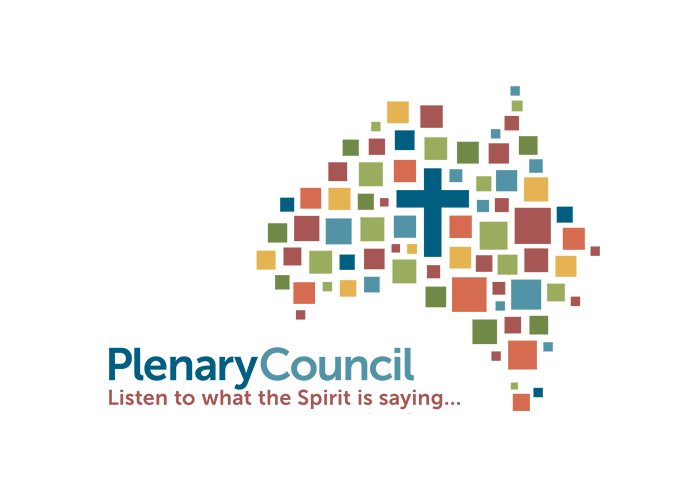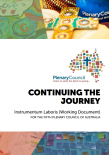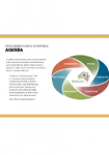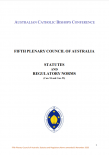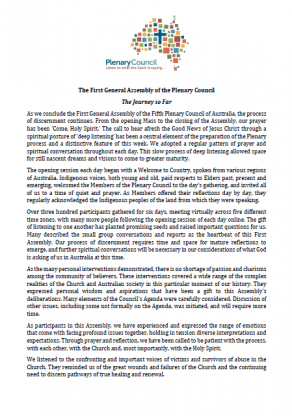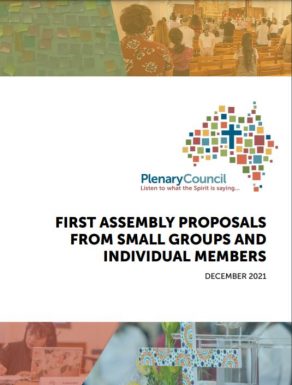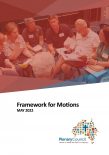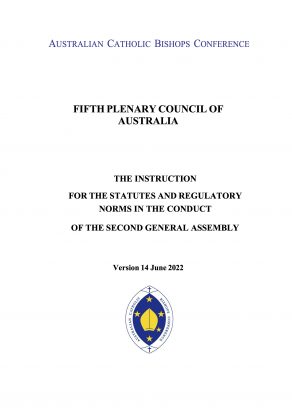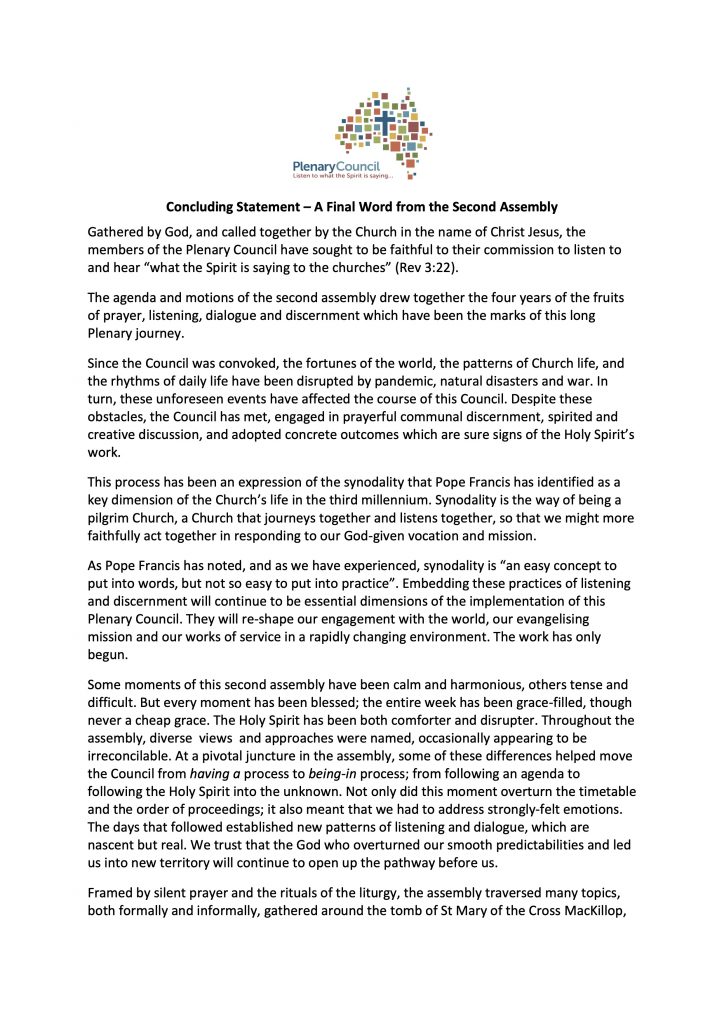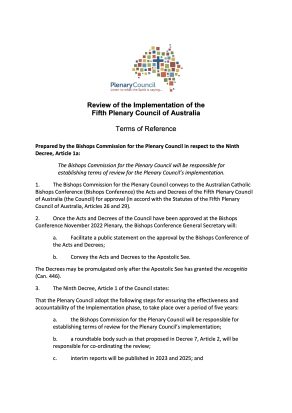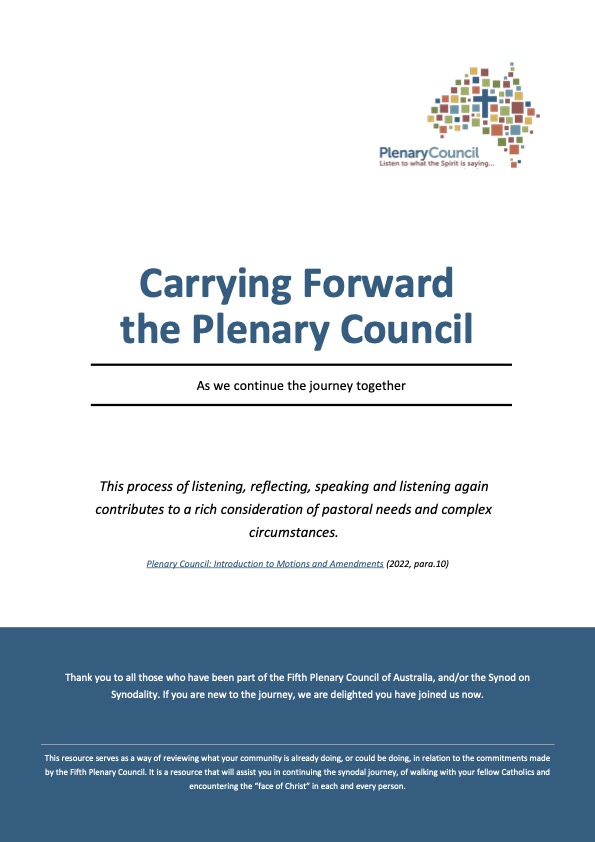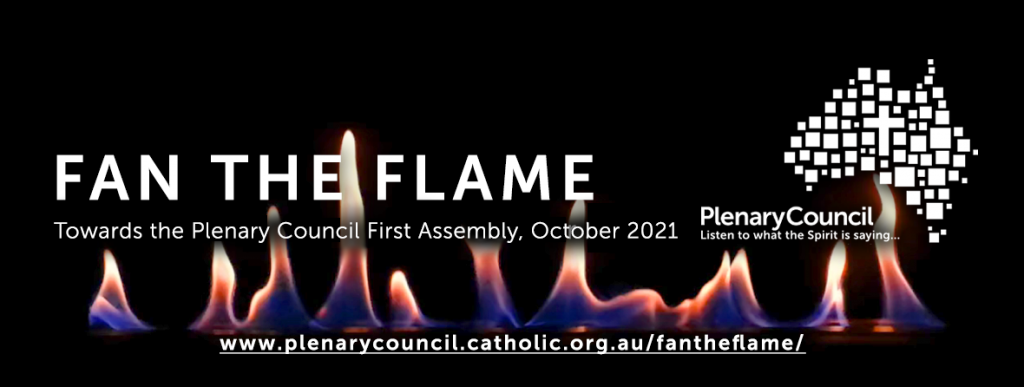
Motions and Voting
During the second assembly of the Fifth Plenary Council of Australia, the Council’s 277 Members – bishops, priests, religious and lay people – will all vote on the dozens of motions that have emerged from the four-year journey.
On each of the first four days of the second assembly, the Members will consider, reflect upon and pray about two sections of the Motions and Amendments document that was published on June 30.
This document reflects the ongoing discernment undertaken by Members, assisted by the Council’s Drafting Committee, during the month of June, building on the earlier Framework for Motions document. The Motions and Amendments document incorporates changes that have been made that did not require motions, and shows marked-up text where amendments to motions will be proposed during the assembly. That applies to six sections of the document, with text in red to denote which possible changes will be considered.
A marked-up version of the document is also available, showing all amendments that were made to the Framework for Motions document by the Drafting Committee.
The outcomes of the Members’ voting on the final version of motions can be found below, across the General Introduction and the eight parts of the Motions and Amendments document.
Voting Outcomes Announced on July 5 (General Introduction and Parts 1 and 2) — DOWNLOAD NOW
Voting Outcomes Announced on July 6 (Parts 3 and 4) — DOWNLOAD NOW
Voting Outcomes Announced on July 7 (Parts 7 and 8) — DOWNLOAD NOW
Voting Outcomes Announced on July 8 (Parts 4, 5, 6, 9, 10 and 11) — DOWNLOAD NOW
During the second general assembly, more than 35 motions were put to a consultative and a deliberative vote. Those motions that received a qualified majority in the deliberative vote – two-thirds of voters eligible and present – were passed by the Plenary Council. They were confirmed as the decrees of the Plenary Council.
After the November 2022 meeting of the Australian Catholic Bishops Conference, the decrees will be sent to the Apostolic See. In accordance with canon 446 of the Code of Canon Law, decrees are not to be promulgated until they have been reviewed by the Apostolic See. They will be promulgated in the Australasian Catholic Record and the website of the Australian Catholic Bishops Conference in accordance with its usual practice. The decrees will oblige six months after promulgation.
The introduction to the Motions and Amendments document also received a qualified majority in the deliberative and can be read here.
Click on the links below to open the decrees (subject to final corrections).
The celebration phase of the Fifth Plenary Council of Australia ended on Saturday, July 9, as Archbishop Timothy Costelloe formally closed the Council and celebrated the closing Mass.
Carrying Forward the Plenary Council
At Pentecost 2023, the Bishops Conference published Carrying Forward the Plenary Council: As we continue the journey together. The document invites Catholic parishes, schools and other communities to pray about, reflect upon and review what they are already doing, or could be doing, in relation to acting on the commitments the Council members made in the decrees (see below for the Council decrees).
As Plenary Council vice-president Bishop Shane Mackinlay wrote, Carrying Forward the Plenary Council “can help us continue with the synodal journey, walking together and encountering the face of Christ in each person”.
Click the button below to download Carrying Forward the Plenary Council.
During the second general assembly, more than 35 motions were put to a consultative and a deliberative vote. Those motions that received a qualified majority in the deliberative vote – two-thirds of voters eligible and present – were passed by the Plenary Council. They were confirmed as the decrees of the Plenary Council.
After the November 2022 meeting of the Australian Catholic Bishops Conference, the decrees will be sent to the Apostolic See. In accordance with canon 446 of the Code of Canon Law, decrees are not to be promulgated until they have been reviewed by the Apostolic See. They will be promulgated in the Australasian Catholic Record and the website of the Australian Catholic Bishops Conference in accordance with its usual practice. The decrees will oblige six months after promulgation.
The introduction to the Motions and Amendments document also received a qualified majority in the deliberative and can be read here.
Click on the links below to open the decrees (subject to final corrections).
Click here to read the terms of reference for the implementation of the Fifth Plenary Council of Australia.
Click the link below for more information on the voting that took place during the second assembly.
Relive the Second Assembly
Many stories and videos were shared during the Council’s second assembly. Click here to read stories and click here to watch videos, including daily Masses, highlights videos and media.
Plenary Council Members approved a concluding statement at the end of the second assembly. Click here to read the statement.
Timeline
The timeline below describes key moments in the Plenary Council journey, including the lead-up to the second assembly and beyond. We invite you to walk this journey with us.
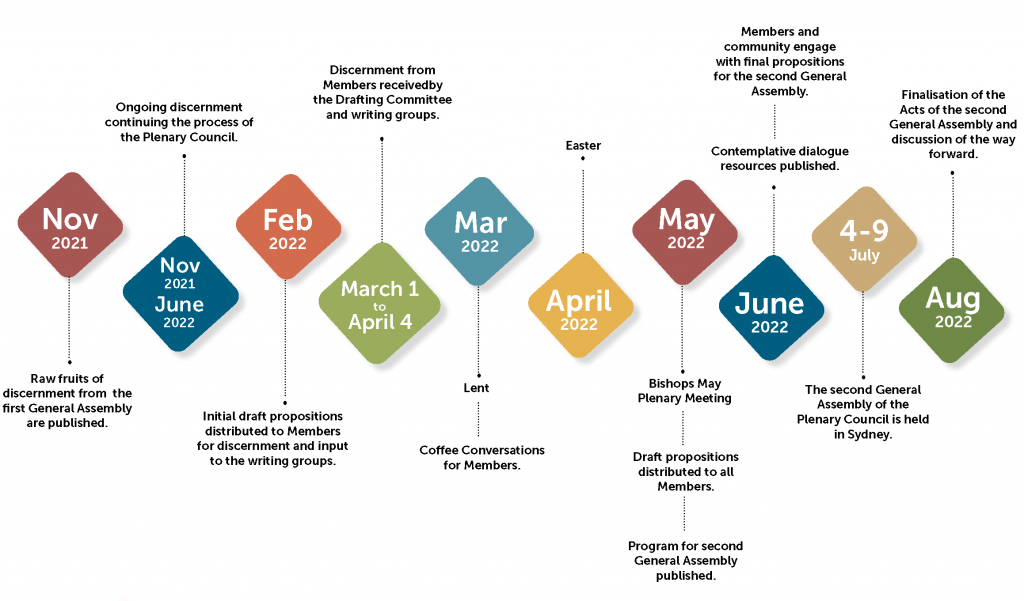
#ListenToTheSpirit
Problem displaying Facebook posts. Backup cache in use.
Click to show error
LISTENING AND DIALOGUE
More than 222,000 people participated in Phase I: Listening and Dialogue, contributing 17,457 submissions. The voices of the faithful helped all of us to understand something of the historical experience and the current reality of the Catholic Church in Australia. This gathered data also reveals some deeper hopes and questions, and the diverse yearnings, that we continue to be challenged to consider together.
Reports
Including the Final Report for Listening and Dialogue, Snapshot Reports for the Themes and Diocesan Reports
The National Themes for Discernment
Checklist of resources you need to run a Listening and Discernment Session, steps and submission forms.
Your Voice
A sample of some of the submissions for Listening and Dialogue
Resources
Archive of Listening and Dialogue Resources
The Plenary Council Journey
- 00Days
- 00Hours
- 00Minutes
TO ASSEMBLY ONE OF THE PLENARY COUNCIL
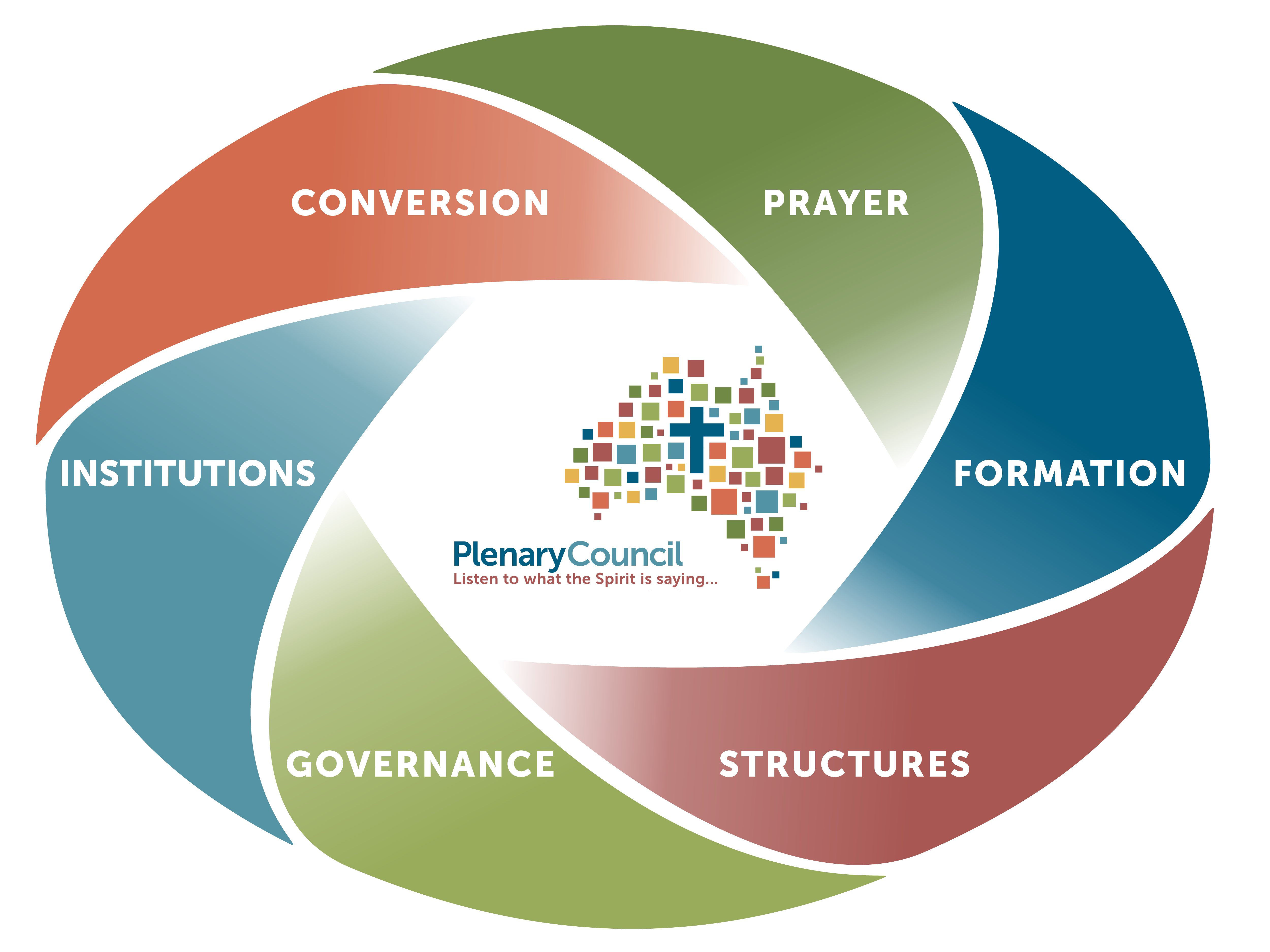
In October 2021, the Catholic Church in Australia will gather for the first Assembly of the Plenary Council to be held since the second Vatican Council. In 2018, when the decision to hold a Plenary Council was announced, the entire People of God in Australia began preparing for this historic moment by listening to God and by listening to one another’s stories of faith.
Due to the Covid-19 pandemic, the first Assembly will be a mix of in-person and online delivery. See the up-to-date PLENARY COUNCIL JOURNEY 2020-2022.
Responses to the discernment journey which began with the Listening and Dialogue Phase, followed by the Listening and Discernment Phase can still be accessed for your consideration and reflection. The six Thematic Discernment papers and Reflection Guide, prepared by several writing groups are also still available, by clicking here.
As we make the journey in these months towards the first Assembly, we are all invited to be mindful that the members (formerly called delegates) will be commissioned and participate in formation sessions in preparation to fulfil their role as members. At the same time, we are all called to continue our own journey of prayer and discernment as we look forward in hope to the renewal of the Catholic Church in Australia.
![]()
-
Phase I: Listening and Dialogue
More than 222,000 people participated in Phase I: Listening and Dialogue, contributing 17,457 submissions. The voices of the faithful helped all of us to understand something of the historical experience and the current reality of the Catholic Church in Australia. This gathered data also reveals some deeper hopes and questions, and the diverse yearnings, that we continue to be challenged to consider together.
-
Phase II: Listening and Discernment
The voices in the Listening and Dialogue submissions inspired The National Themes for Discernment, which have served as guides as we went through Phase II: Listening and Discernment. Catholics all over Australia participated in Writing and Discernment sessions, discerning on the submissions with prayerful hearts and minds. These responses made their way to our Writing and Discernment Groups via our website portal, who drafted thematic papers towards making the agenda for Assembly 1.
Discernment will go on indefinitely. We invite you to continue getting together with your community for sessions and sending us your responses via the website. -
Towards Assembly 1
With the calling of the members, we commenced work towards Assembly 1 of the Plenary Council in earnest. While Discernment continues across the country, members will undergo formation and be sent documents in advance. These documents included the THEMATIC DISCERNMENT PAPERS written by the Writing and Discernment Groups.
In 2020, we announced more than 280 members (formerly called delegates) for the Fifth Plenary Council of Australia, including members nominated by dioceses, eparchies, ordinariates, leaders of religious congregations, some church ministries and a personal prelature. The members will represent those local churches at the celebration of the Council over two assemblies – originally planned for Adelaide in October 2020 and in Sydney in mid-2021.
On April 6, 2020, Assembly 1 was postponed due to the COVID-19 pandemic preventing the desired process of discernment and formation for the members. As of June 2020, Assembly 1 will be held in a multi-modal form online on October 2-10, 2021 and Assembly 2 will be held in Sydney on July 4-9, 2022.
On February 2021, Continuing the Journey: Working Document (Instumentum Laboris) was released. Find the details on the Instrumentum Laboris page. On June 2021, the Agenda for the Plenary Council was released, and Formation Sessions for Members commenced.
Your Voice
Social Media
Problem displaying Facebook posts. Backup cache in use.
Click to show error
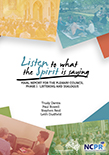
Listen to What the Spirit is Saying
Final Report for the Plenary Council Phase I: Listening and Dialogue (spread version)
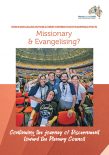
How is God calling us to be a Christ-Centred Church in Australia that is Missionary and Evangelising?
Thematic Discernment Paper, Continuing the Journey of Discernments Towards the Plenary Council
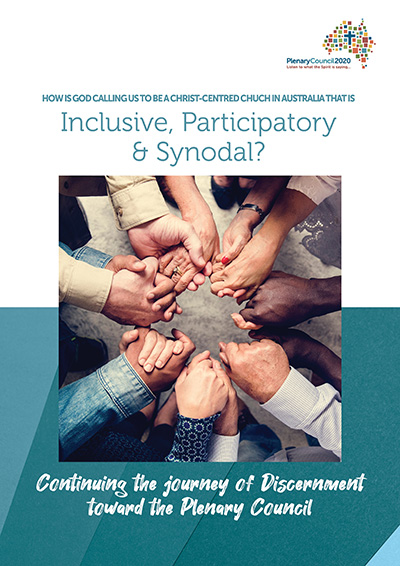
How is God calling us to be a Christ-Centred Church in Australia that is Inclusive, Participatory and Synodal?
Thematic Discernment Paper, Continuing the Journey of Discernments Towards the Plenary Council
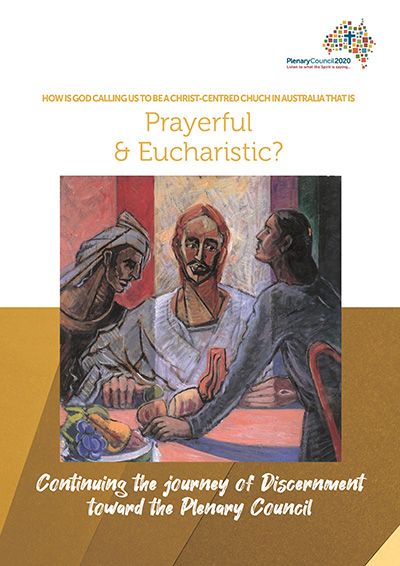
How is God calling us to be a Christ-Centred Church in Australia that is Prayerful and Eucharistic?
Thematic Discernment Paper, Continuing the Journey of Discernments Towards the Plenary Council
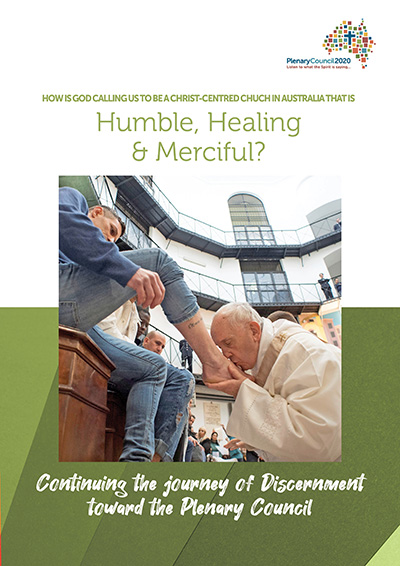
How is God calling us to be a Christ-Centred Church in Australia that is Humble, Healing and Merciful?
Thematic Discernment Paper, Continuing the Journey of Discernments Towards the Plenary Council
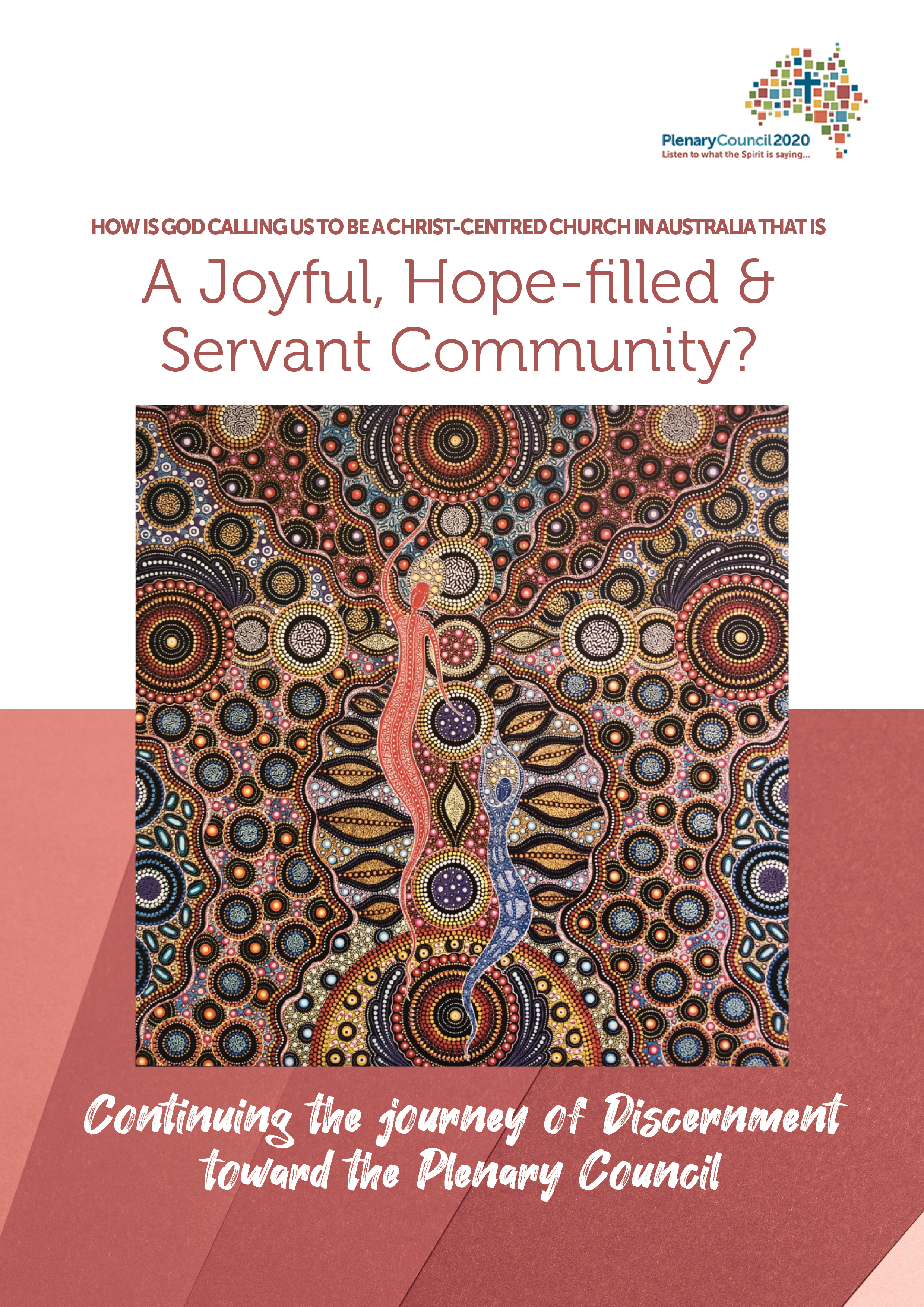
How is God calling us to be a Christ-Centred Church in Australia that is a Joyful, Hope-Filled and Servant Community?
Thematic Discernment Paper, Continuing the Journey of Discernments Towards the Plenary Council
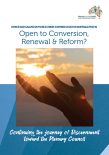
How is God calling us to be a Christ-Centred Church in Australia that is Open to Conversion, Renewal and Reform?
Thematic Discernment Paper, Continuing the Journey of Discernments Towards the Plenary Council
The instrumentum laboris, draws heavily on the voices heard during the Listening and Dialogue and Listening and Discernment phases of the Plenary Council, but also from other key sources. It is entitled Continuing the Journey.
A number of key themes emerge in the document, including:
renewing a Christ-centred Church that heals wounds and warms hearts;
strengthening practices of discernment and synodality;
the call to co-responsibility in mission and governance;
embedding a response to the Royal Commission into Institutional Responses to Child Sexual Abuse;
renewing and supporting the ordained ministry;
promoting discipleship in parishes, families and young people;
forming prayerful and Eucharistic communities that are eager to engage in society for the service of all;
proclaiming the Gospel in a change of era;
renewing the Church’s solidarity with First Australians and those on the margins of society;
promoting an integral ecology of life for all persons, societies and our common home, the Earth.
Read the Instrumentum Laboris
- Continuing the Journey: Working Document (Instrumentum Laboris) - For online reading
- Continuing the Journey: Working Document (Instrumentum Laboris) - For printing at home
- Continuing the Journey: Working Document (Instrumentum Laboris) - For printing with crop and bleed
- Reflection Guide for Continuing the Journey: Working Document (Instrumentum Laboris)

Listen to Plenary Podcast episodes about the Instrumentum Laboris

Mr Daniel Ang
Mr Ang has been part of the Plenary Council journey since its inception, serving on the Council’s executive committee, an advisory body to the Bishops Commission for the Plenary Council. He is a member of the Australian Catholic Council for Pastoral Research and former chair of the National Pastoral Planners Network. His qualifications include a Master of Divinity from the Sydney College of Divinity. He is currently director of the Sydney Centre for Evangelisation.
How have the voices of the People of God laid the foundations for the Plenary Council journey?
I’m honoured to have been invited by the bishops to contribute to the preparations for the Plenary Council in this way. I’ve been very grateful to be a part of conversations over the past years and to listen to the experiences and questions posed in a number of parishes and communities, in schools, by individuals, at gatherings of clergy and diocesan assemblies. There’s a strong desire for renewal in the voices I have heard and in the working papers now received. I see the Council as a call to focus on the ways in which we are summoned by God through the action of the Holy Spirit to proclaim and live out the mission of Christ faithfully in Australian society. The views and experiences shared underscore how different our situation is today and will be in the future to previous generations and yet also express an enduring passion for the Gospel of Jesus Christ and a desire to be attentive to what the Spirit of God, the Spirit of Christ, is “saying to the churches”.
What do you see as the task of the Instrumentum Laboris team in the current stage of preparation?
I anticipate the Instrumentum Laboris will bring the fruit of the listening and dialogue that has taken place over these years, and also as reflected upon and wrestled with by the Discerning and Writing Groups, into a new stage of synthesis and into conversation with developments that have emerged even since the Plenary Journey began. I think particularly of the recent report on governance, the ongoing implications connected to the Royal Commission, and just in this past fortnight the Instruction from Pope Francis on the renewal of parish life. These bring further light to the voices already shared as we seek to chart a course of faith-filled and missionary renewal here in Australia. Of course I’m conscious that our role will be one part of a Plenary journey that will stretch well beyond our group’s work together, to engage other voices. Above all it will be the delegates of the Council itself who will convene, pray, discuss and invoke and involve the Spirit’s gift of faith and understanding for the renewed evangelisation that is invited by our times.
How will the Instrumentum Laboris invite the Church in Australia to continue to listen to the Spirit?
I hope that our work will provide a faith-filled platform from which conversation among the delegates at the Council can spring. By attending to the experience and hopes that have been shared to date and engaging the themes and questions that have been raised from within the living tradition of our Church I trust that the Spirit will move us forward. I see this entire pilgrimage of faith as none other than the reception of Jesus through time under the guidance of this Holy Spirit, and so I hope our work will ultimately nourish that encounter with Christ which is the very foundation and mission of the Church’s future in faith.
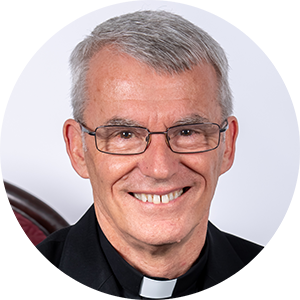
Archbishop Timothy Costelloe SDB
Archbishop Costelloe, the Archbishop of Perth since 2012, was elected president of the Plenary Council in November 2017. In addition to pastoral ministry, Archbishop Costelloe has taught in secondary schools and at the Catholic Theological College in Melbourne and the University of Notre Dame Australia, and assisted in the formation of members of his religious congregation: the Salesians of Don Bosco. He has held several leadership roles within the Salesians and within the Australian Catholic Bishops Conference.
How have the voices of the People of God laid the foundations for the Plenary Council journey?
At the heart of our Plenary Council journey has been the idea that, guided by the teachings and inspiration of Pope Francis on synodality, we have all been trying to “listen to God by listening to each other”. The Holy Spirit “breathes where he wills” (see John 3:8) and anoints the whole People of God with an “instinct for the faith” (see Lumen Gentium 35). “Listening to God” is the only way of answering the question of the Plenary Council: “What do you think God is asking of us in Australia at this time?” Through private and communal prayer, and through sincere, open and respectful dialogue, many members of our Catholic community have shared their own understanding of what God might be asking of us. Our challenge now is to discern, in the multiplicity of voices we have heard, the voice of the Spirit who leads us forward.
What do you see as the task of the Instrumentum Laboris team in the current stage of preparation?
The writing of the Instrumentum Laboris is a further important step in the journey of discernment in which we are all engaged. As well as the voices of the people of God which have been so powerfully expressed in the Listening and Dialogue and Listening and Discernment phases of our journey, we also have been listening to other voices: the voice of the Royal Commission, the voice of the Governance Review, the voice of Pope Francis and the bishops, the voice of our responses to the COVID-19 pandemic and to other events in our local, national and international contexts. It is the task of the Instrumentum Laboris to give voice to all these elements of our individual and communal experience, and deepen the process of bringing them into dialogue with the Gospel and the Church’s living Tradition (see Novo Millennio Ineunte 29).
How will the Instrumentum Laboris invite the Church in Australia to continue to listen to the Spirit?
The Instrumentum Laboris is not in any sense the final word on any issue. The “final word” will be spoken in the months and years which follow the Plenary Council, as each diocese and local Church community begins to discern how best to incorporate the insights and practical proposals which emerge from the Plenary Council into its own local context. Rather, as a major impetus for deeper reflection and prayer leading up to and during the Plenary Council Assemblies in 2021 and 2022, the Instrumentum Laboris will hopefully be a constant reminder of the need for an ongoing and deepening discernment of God’s will for the Church in a rapidly changing and ever more challenging world.

Dr. Trudy Dantis
Dr Dantis is director of the National Centre for Pastoral Research (NCPR), an agency of the Australian Catholic Bishops Conference, which was responsible for the collation and summary of submissions in the Plenary Council’s Listening and Dialogue phase. Her doctoral thesis was titled “Tracing the pulse: An investigation into the vitality of Australian Catholic parishes”. She is the author of A Handbook for Building Stronger Parishes and has authored and co-authored several research reports. Dr Dantis is deputy chair of the board of the Christian Research Association.
How have the voices of the People of God laid the foundations for the Plenary Council journey?
During the Listening and Dialogue Phase, I was privileged to be able to read and gather together the submissions made by individuals and groups in families, parishes, schools and organisations. These experiences and stories of faith and Church bear testimony to the concrete realities of how faith is lived out today in Australia. The joys and hopes, questions and challenges that have been shared during this phase and through the writings of thematic papers form the basis for the continued process of reflection and discernment. They continue to be a crucial element of the path of synodality as we work towards the ongoing mission of the Church in Australia and for the proclamation of Christ to the world.
What do you see as the task of the Instrumentum Laboris team in the current stage of preparation?
As we journey towards the Plenary Council, the Instrumentum Laboris can be best described as “a step along the way”. It discusses the pastoral realities and issues essential to the faith and life of the Church in Australia and synthesises them with inspirations from the Gospels and the teachings of the Church. An important aspect in this task is being ever mindful of the promptings of the Holy Spirit as we discern possible avenues for the way forward. This working document will be used as a springboard for the discussions of the Plenary Council Assemblies to assist them in their task of making decisions for the future of the Church in Australia.
How will the Instrumentum Laboris invite the Church in Australia to continue to listen to the Spirit?
Pope Francis reminds us that processes of renewal and transformation cannot come only in reaction to data or external needs but that the journey necessitates “pastoral conversion” — a process that calls for attentiveness to the Word of God and to our mission to proclaim the Gospel. The Instrumentum Laboris is an invitation to the Church in Australia to continue and deepen the processes of listening, reflection and discernment, as each of us seeks to respond to the call to be a Christ-centred Church in this land.

Fr. Kevin Lenehan
Fr Lenehan was last year appointed master of the Catholic Theological College in Melbourne. A priest of the Diocese of Ballarat, Fr Lenehan has qualifications from Monash University, the University of Divinity and Australian Catholic University, and gained a Doctorate in Sacred Theology from the Catholic University of Leuven in Belgium. He works in the areas of fundamental theology, theological anthropology and religious education. He is active in liturgical ministry in parishes and contributes to faith formation and professional development in parishes, schools and dioceses.
How have the voices of the People of God laid the foundations for the Plenary Council journey?
The journey of discernment is about learning to see with the eyes of faith. The contribution of over 200,000 Catholics in the preparatory stages of the Plenary Council has highlighted the things that matter to people of faith as they try to live out their call to follow Jesus in their families, their parishes, in Australian society, and in care for life and for the earth.
What do you see as the task of the Instrumentum Laboris team in the current stage of preparation?
The Instrumentum Laboris team, like all those ‘walking together’ (synodus) on the Plenary Council journey, works by listening, gathering information, praying, and proposing some next steps in the mission of the Church in Australia. It aims to offer a useful instrument or resource to the Council Assemblies that synthesises the priorities from the Gospel, from the Church’s dynamic tradition, and from the lived faith expressions of today’s Catholics.
How will the Instrumentum Laboris invite the Church in Australia to continue to listen to the Spirit?
The Instrumentum Laboris aims to be a stimulus and guide to the communal discernment event of the Plenary Council Assemblies in 2021 and 2022. It will assist the Plenary Council delegates to remain open to the working of the Holy Spirit by shining a light on the urgent questions of Catholics in Australia today, and by challenging the delegates to reflect carefully on the Scriptures and Tradition in order to propose realistic and authentically Catholic ways for the church at all levels to respond to those urgent questions.
- 00Days
- 00Hours
- 00Minutes
TO ASSEMBLY ONE OF THE PLENARY COUNCIL
In October 2021, the Catholic Church in Australia will gather for the first Assembly of the Plenary Council to be held since the second Vatican Council. In 2018, when the decision to hold a Plenary Council was announced, the entire People of God in Australia began preparing for this historic moment by listening to God and by listening to one another’s stories of faith.
Due to the Covid-19 pandemic, the first Assembly will be a mix of in-person and online delivery. See the up-to-date PLENARY COUNCIL JOURNEY 2020-2022.
Responses to the discernment journey which began with the Listening and Dialogue Phase, followed by the Listening and Discernment Phase can still be accessed for your consideration and reflection. The six Thematic Discernment papers and Reflection Guide, prepared by several writing groups are also still available, by clicking here.
As we make the journey in these months towards the first Assembly, we are all invited to be mindful that the members (formerly called delegates) will be commissioned and participate in formation sessions in preparation to fulfil their role as members. At the same time, we are all called to continue our own journey of prayer and discernment as we look forward in hope to the renewal of the Catholic Church in Australia.
![]()
-
Phase I: Listening and Dialogue
More than 222,000 people participated in Phase I: Listening and Dialogue, contributing 17,457 submissions. The voices of the faithful helped all of us to understand something of the historical experience and the current reality of the Catholic Church in Australia. This gathered data also reveals some deeper hopes and questions, and the diverse yearnings, that we continue to be challenged to consider together.
-
Phase II: Listening and Discernment
The voices in the Listening and Dialogue submissions inspired The National Themes for Discernment, which have served as guides as we went through Phase II: Listening and Discernment. Catholics all over Australia participated in Writing and Discernment sessions, discerning on the submissions with prayerful hearts and minds. These responses made their way to our Writing and Discernment Groups via our website portal, who drafted thematic papers towards making the agenda for Assembly 1.
Discernment will go on indefinitely. We invite you to continue getting together with your community for sessions and sending us your responses via the website. -
Towards Assembly 1
With the calling of the members, we commenced work towards Assembly 1 of the Plenary Council in earnest. While Discernment continues across the country, members will undergo formation and be sent documents in advance. These documents included the THEMATIC DISCERNMENT PAPERS written by the Writing and Discernment Groups.
In 2020, we announced more than 280 members (formerly called delegates) for the Fifth Plenary Council of Australia, including members nominated by dioceses, eparchies, ordinariates, leaders of religious congregations, some church ministries and a personal prelature. The members will represent those local churches at the celebration of the Council over two assemblies – originally planned for Adelaide in October 2020 and in Sydney in mid-2021.
On April 6, 2020, Assembly 1 was postponed due to the COVID-19 pandemic preventing the desired process of discernment and formation for the members. As of June 2020, Assembly 1 will be held in a multi-modal form online on October 2-10, 2021 and Assembly 2 will be held in Sydney on July 4-9, 2022.
On February 2021, Continuing the Journey: Working Document (Instumentum Laboris) was released. Find the details on the Instrumentum Laboris page.
Your Voice
Social Media
Problem displaying Facebook posts. Backup cache in use.
Click to show error
Thank you for submitting your responses from communal discernment
Lorem ipsum dolor sit amet, consectetur adipiscing elit. Sed iaculis a dolor id fermentum. Pellentesque tristique dui libero, vel laoreet tellus porta accumsan. Donec quis purus sagittis, volutpat orci eu, volutpat mi. Fusce aliquet sagittis mauris ac efficitur. Ut eget lorem id mauris convallis condimentum sit amet elementum dui. Phasellus interdum porttitor nibh. Suspendisse lobortis, eros in vulputate dictum, nisl metus placerat nulla, vitae facilisis odio diam sit amet arcu. Nullam non ante eget turpis ornare elementum. Nulla risus velit, pellentesque convallis ipsum sit amet, semper ultrices ligula. Vestibulum a auctor neque. Phasellus id ornare tellus, ut sollicitudin risus. Aliquam ultricies dolor nec turpis porttitor aliquet. Aliquam eget velit vehicula, feugiat arcu at, pellentesque lectus. Suspendisse sed pellentesque ex, eu vulputate nisl.
Nullam a turpis orci. Praesent a dapibus arcu, eget tincidunt ligula. Duis maximus vel elit ut cursus. Curabitur vehicula maximus eros id porta. Aliquam nisi elit, pulvinar sed nisl vel, consequat egestas urna. Lorem ipsum dolor sit amet, consectetur adipiscing elit. In lacinia facilisis odio non ultricies. Cras vitae placerat elit. In feugiat vulputate ultrices. Integer ac ante nec eros dignissim maximus quis et nunc. Nunc ac mollis leo. In vitae euismod tortor, vitae vulputate ligula. Donec egestas, lorem nec imperdiet ultrices, urna eros malesuada diam, sed pellentesque enim odio sed augue. In ut consectetur nibh, non facilisis libero. Mauris fermentum porttitor pulvinar. Aliquam non nulla dui.
Click the boxes of the appropriate theme below to view the responses (in PDF form).
To review responses from Phase I: Listening and Dialogue, read the Final Report or the Snapshot Reports located HERE.
Responses last updated: November 12, 2019
- Your Voice
- Stories
History and Theology
2018
In 2018, when the decision to hold a Plenary Council was announced, the entire People of God in Australia began preparing for this historic moment by listening to God and by listening to one another’s stories of faith.
Listening and Dialogue
2018-2019
More than 222,000 people participated in Phase I: Listening and Dialogue, contributing 17,457 submissions.
